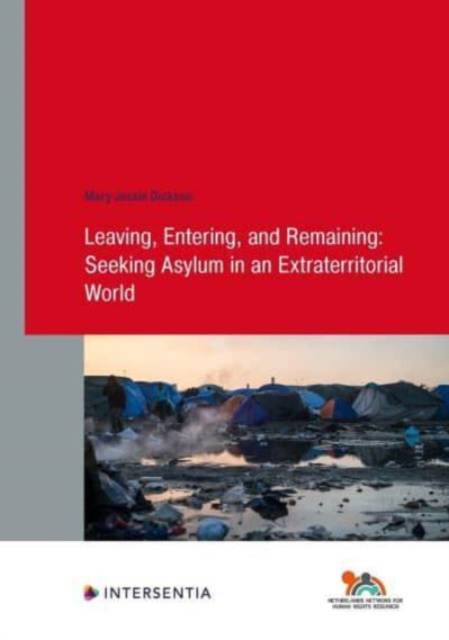
- Afhalen na 1 uur in een winkel met voorraad
- Gratis thuislevering in België vanaf € 30
- Ruim aanbod met 7 miljoen producten
- Afhalen na 1 uur in een winkel met voorraad
- Gratis thuislevering in België vanaf € 30
- Ruim aanbod met 7 miljoen producten
Zoeken
€ 116,45
+ 232 punten
Omschrijving
Member States of the European Union have suggested resorting to the extraterritorial processing of asylum claims and resettlement as alternatives to the spontaneous arrival of refugees/asylum seekers at their borders. Yet there exists no consensus about the definition, operation, and implications of these policies. Central to the currently prevailing uncertainty is the effect of extraterritoriality, both in terms of legal and ethical obligations owed to those who are geographically distant from a particular state border. This book seeks to contribute to the discussion on extraterritorial processing and resettlement by considering their implications. It does so by using a mixed methodology, comprising of legal analysis and ethical reasoning, in order to appraise the legality and legitimacy of these policies. The structure of leaving, entering, and remaining is employed to consider the right to leave, non-refoulement, the ability to receive protection in an EU Member State, and their interaction with the extraterritorial context. Scholars researching alternatives to the spontaneous arrival of asylum seekers will find this book particularly relevant, as well as those studying the protection of human rights in the extraterritorial context more generally. Finally, the book also provides insights for policy-makers exploring novel pathways to complement existing asylum systems.
Specificaties
Betrokkenen
- Auteur(s):
- Uitgeverij:
Inhoud
- Aantal bladzijden:
- 238
- Taal:
- Engels
- Reeks:
Eigenschappen
- Productcode (EAN):
- 9781839703539
- Verschijningsdatum:
- 16/03/2023
- Uitvoering:
- Paperback
- Formaat:
- Trade paperback (VS)
- Afmetingen:
- 170 mm x 244 mm
- Gewicht:
- 411 g

Alleen bij Standaard Boekhandel
+ 232 punten op je klantenkaart van Standaard Boekhandel
Beoordelingen
We publiceren alleen reviews die voldoen aan de voorwaarden voor reviews. Bekijk onze voorwaarden voor reviews.











